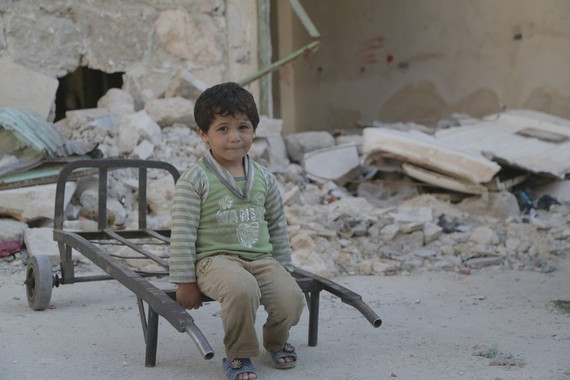Whenever I read a story of a refugee, I am reminded of my own story. My story began when I was 13, and spanned from Eritrea to the UK. The war in Eritrea was getting fierce and volatile where the liberation movement was taking over the larger cities in the country. Despite my father cooperating with the rebels, he decided it was best for us to leave the country. It was one of the hardest things we've had to do.
We left Eritrea under the guise of my father taking a pilgrimage to Mecca and a family wedding in Sudan. That was when I became a refugee, like millions of others around the world today. Travelling with rebels towards the border and being stopped and questioned was a terrifying experience that has stayed with me since that age. We stayed with family for a while - like many Eritreans that were fleeing to Sudan - but eventually rented our own accommodation. We were the lucky ones unlike others trying to escape persecution. People in Sudan were welcoming and hospitable, but for me life was difficult, mainly due to a language barrier - the education system was in Arabic. By the end of the first academic year in Sudan, I had a good understanding of subjects, but my achievement was poor due to the fact I couldn't express myself clearly.
We eventually left Sudan to join my father in Saudi Arabia where my Arabic improved and two years later I received a scholarship to continue studying in Libya. With all the moving around, I was continually being put into school classes at lower levels than were suitable for my age, which I found frustrating.
My formative teenage years were spent as a refugee. By the age of 20, I had lived in Sudan, Saudi Arabia, Libya, Egypt and the United Kingdom. After studying in the UK for a couple of years, the nomadic lifestyle seemed to suit me and I was hoping to go and study in France, but my father encouraged me to stay in the UK. I had a fairly safe route going from country to country and stayed with my family throughout my childhood.
My journey was one of relative calm, but refugees today are facing a totally different experience. Those who are fleeing places like Syria, Iraq and Somalia today are facing trials and challenges at every step of their journey to safe havens in Europe and beyond; and finding further barriers in their host communities. We have heard stories of refugees being met with racism, xenophobia, accusations of crimes they have not committed and loss of lives. We need to ensure that refugees are treated with dignity and are given protection at every step of their journey. It can and should not be the case that refugees and forced migrants who are escaping upheaval and destruction of their homes then face policies and rhetoric in their host communities which leave them feeling unsafe, unwelcome and unwanted.
Fear, sadness, anticipation and anxiety are feelings, I am sure, shared by every man, woman, boy and girl that has ever has been forced to leave their home to start a new life somewhere else. We must stand in solidarity with refugees.
Invariably, when speaking to leaders and policy makers, these personal experiences of mine partially inform what I say. I am watching the biggest humanitarian crisis of recent times unfolding before my eyes and my heart aches - knowing that I am in a position to help as the CEO of the world's largest Muslim humanitarian INGO, and yet, like many others around the world, at times I feel helpless and heartbroken seeing the plight of children like Alan Kurdi and Omran Daqneesh. In Islam, we are repeatedly commanded in the Qur'an to treat migrants and refugees with dignity and a welcoming spirit.
The Qur'an calls on humankind to fulfil the role of protectors and helpers to "those oppressed men, women and children, who cry out, 'Lord, rescue us from this town where people are oppressors!'" (Qur'an 4:75) - and promises that those escaping persecution will find "many a refuge and a great plenty in the earth" (Qur'an 4:99).
Islam has a rich tradition and history of protecting migrants and refugees, the Prophet Muhammad (peace be upon him) was also a migrant, having to flee his birth town of Mecca to travel to Medina, 300 miles away, where he found refuge from persecution, discrimination and death.
At Islamic Relief, we are committed to the protection of refugees and to the establishment of a more humane and productive response to hosting refugees and supporting their long-term resilience. We provide life-saving assistance and support to refugees and forced migrant communities in countries including Jordan, Kenya, Iraq, Lebanon, Pakistan, Sudan, Syria, Tunisia, and Yemen.
As world leaders gather at the UN high level meeting in New York next week to address the large movement of Refugees and Migrants, I stand with refugees and call on world leaders to do more. I hope they will listen to the call of humanitarian aid agencies like Islamic Relief Worldwide, civil society groups and most importantly the 65.3 million refugees and migrants worldwide to ensure that they are given the protection they so desperately need.

